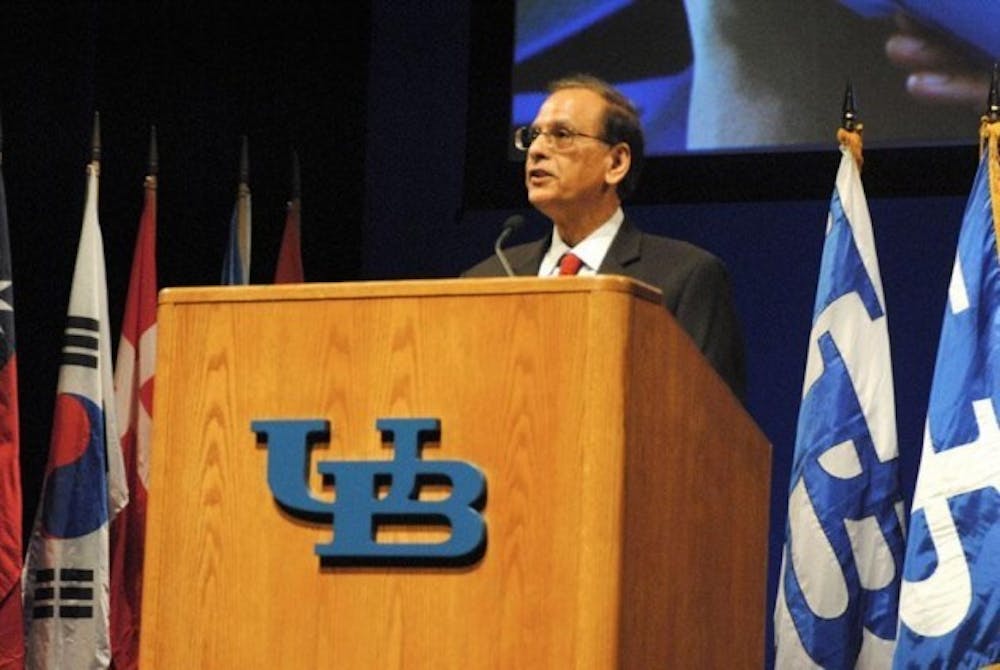Dr. Richard Cohen believes President Satish Tripathi is hindering the religious practices of students and faculty members at UB.
On May 23, Tripathi announced the creation of the "Religiously-Neutral Academic Calendar," which includes classes on Rosh Hashanah and Yom Kippur in an attempt to "ensure greater continuity in the academic schedule and minimize course disruptions for students."
The decision came from the president after he received the Faculty Senate Executive Committee's recommendation that no religious holidays should recognized by the university and observed with a day off from classes.
"Does President Tripathi think that we are stupid?" Cohen posted on UB Reporter. "The UB academic calendar is not 'religiously neutral' because it purposely has no classes on Sundays, Christmas and Easter."
Cohen, the director of the Institute of Jewish Thought and Heritage at UB, said the calendar has nothing to do with religion, but rather the administration's desire for a more fluid semester with fewer single days off throughout the 14 weeks.
However, this is a moot point, according to Lyle Selsky, the vice president of the Student Association. He believes students are going to practice their faith even if classes are being held. Jewish faith prohibits attending work or school and using modern transportation and electronics on Rosh Hashanah and Yom Kippur.
During a Faculty Senate meeting in March, junior occupational therapy major Ilana Saffeir explained she chose UB over a private school because of the university's observance of her religion and the larger Jewish community. Cohen believes students like Saffeir will now be less likely to enroll at UB.
"The decision will have a dampening effect, especially because SUNY at Binghamton has retained Rosh Hashanah and Yom Kippur as academic holidays on their calendar," he said in an email. "Making matters worse, Binghamton is of course closer to NYC, where the largest percentage of NY's large Jewish population resides - making Binghamton also far more convenient for Jewish students than Buffalo."
UB will be the 23rd SUNY four-year university to hold classes on the holidays. Some universities, like Stony Brook University, made the change effective as recently as 2012-13 academic year. The change also follows the practices of the governments of New York State and New York City, which close on no religious holiday other than Christmas Day.
Philosophy professor William Baumer welcomes the change and thinks the removing of all religious holidays from the academic calendar lends itself to "non-discrimination." During a Faculty Senate meeting in 2002, Baumer motioned for UB to observe the holy days, but looking back, he believes this was a mistake. On March 5, he argued that students are supposed to be accommodated by their professors anyway if a class conflicts with religious practice.
Tripathi upheld that policy in his announcement about the change.
The new academic calendar will take effect in the 2014-15 academic year for undergraduate and graduate students; the law, medical and dental schools follow individual approved calendars. Before the start of the fall 2013 semester, the Office of the Provost is set to provide a more detailed policy to professors on how to accommodate the religious observances of their students.
Email: news@ubspectrum.com





